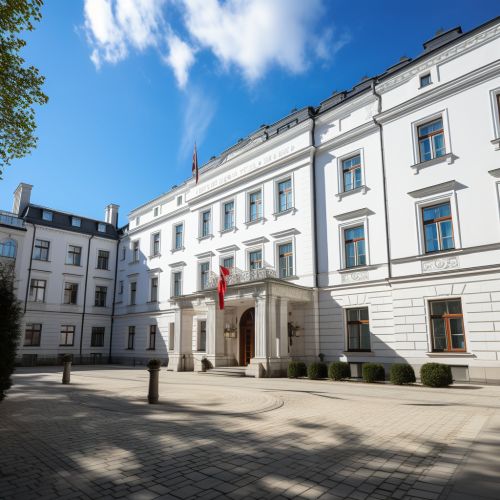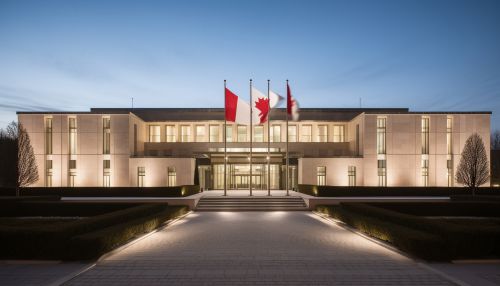Council of Ministers (Poland)
Overview
The Council of Ministers in Poland is the collective executive body of the Polish Government, comprising the Prime Minister, deputy prime ministers, and ministers. The Council of Ministers operates under the principles of collegiality and equality, making decisions based on the majority of votes.


History
The Council of Ministers has its roots in the Constitution of 1921, which established a cabinet of ministers responsible for specific areas of administration. The current structure of the Council of Ministers, as it is known today, was established by the Constitution of 1997.
Structure
The Council of Ministers is composed of the Prime Minister, who is the head of government, and various ministers who head executive departments. The Prime Minister is appointed by the President and approved by the Sejm, the lower house of the Polish Parliament. The Prime Minister then proposes the remaining members of the Council, who are also appointed by the President.
Functions
The Council of Ministers is responsible for the implementation of legislation, the administration of the state, and the defense of the Constitution. It also prepares draft laws and the state budget, directs and coordinates the work of government administration, and ensures the implementation of the state's domestic and foreign policy.
Decision-making process
The Council of Ministers makes decisions during meetings, which are held at least once a week. The meetings are chaired by the Prime Minister or, in his or her absence, by a deputy prime minister. Decisions are made by an absolute majority of votes, with the Prime Minister having the casting vote in the event of a tie.
Relationship with other institutions
The Council of Ministers is accountable to the Sejm and the Senate, the two houses of the Polish Parliament. It presents reports on its activities to the Sejm, and can be dismissed by a vote of no confidence. The Council also cooperates with the President, who has the right to preside over its meetings.
